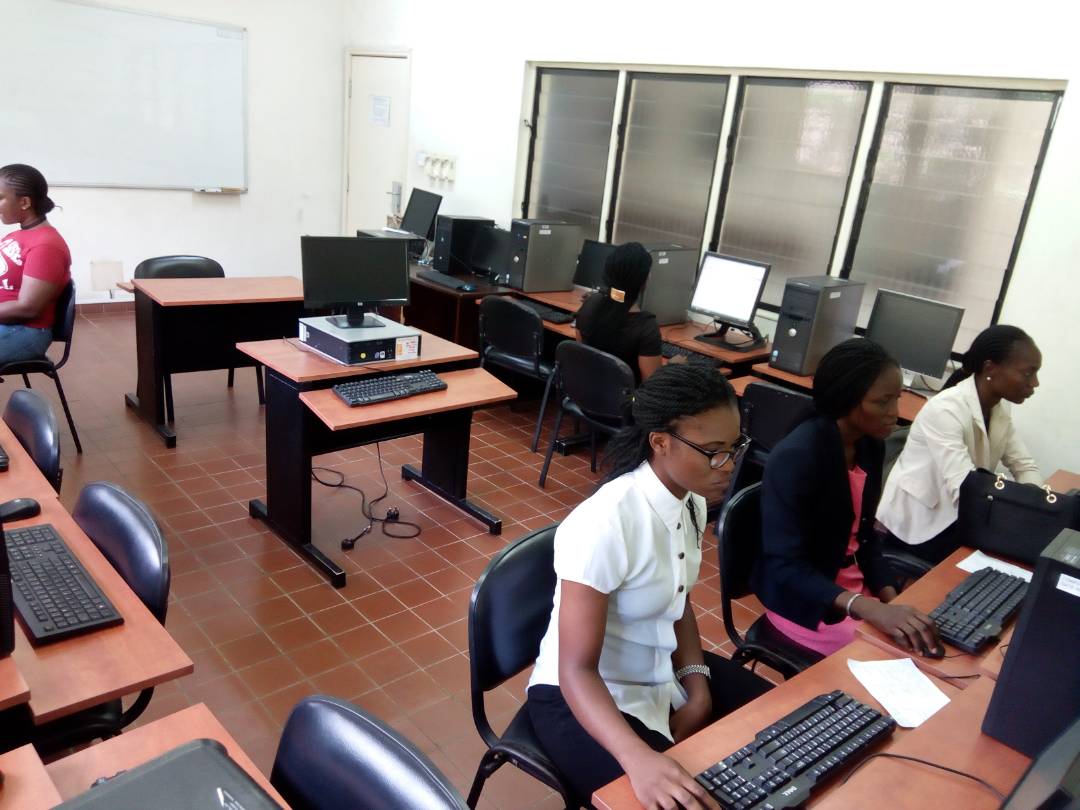
![]()
![]()
Wavecrest College of Hospitality is a private Monotechnic located in Lagos, Nigeria. This award-winning institution has been involved with the development of Hospitality Education since 1974. It is a project of the Nigeria-based Women’s Board – Educational Co-operation Society for the development of the Girl Child. It is a tertiary institution approved by the National Board for Technical Education and is a training provider for the National Skills Qualification Framework. It offers national diplomas, higher national diplomas, certificates and training programmes. The College has an Advisory Board and linkages into organisations in hospitality, thus providing students with good opportunities for employment.
The Government declared a total lockdown of the educational institutions and the hospitality sector. At this time, students were in the middle of a semester. One certificate course group had still to complete a theory assessment. The latter was re-designed to include case studies so that learning outcomes could be assessed.
![]()
Our Approach
The dilemma was how to manage learning for the second semester and the decision was to take a blended learning approach during the lockdown.
The following steps were taken:
- The College, not having its own Learner Management System (LMS), adapted syllabi to include lecture notes, voice notes, presentations, using Google Classroom.
- All lecturers have undergone training on how to conduct online learning system
- Students used social media platforms i.e. Zoom, WhatsApp to participate in lectures
- In order to achieve interactivity, the Chat function was utilised and students were encouraged to set up their own discussion groups
- Lectures and voice notes were prepared and sent to the students prior to ‘real-time’ teaching. Students accessed the class via Zoom and WhatsApp
- Each week there was an assessment using case studies, question and answer discussions and e-mails
- Practical demonstrations were developed on video and by making use of existing YouTube material
Key Results
- Online learning continued throughout the second semester despite connectivity issues
- The College delivered the theory and demonstration elements to all classes
- All students were able to complete the semester
- Students were assessed on theoretical aspects of the curriculum
Lessons Learnt (Success Factors & Challenges)
Challenges
There were a number of challenges to deal with:
- Only 60% of students had access to smart devices
- Cost of data was prohibitive for these young women from disadvantaged backgrounds
- The interrupted power supply had an impact on learning system stability
- Certificate students, who did not have established relationships with lecturers found online learning challenging and required more motivation to learn
- A key and critical component of learning for a vocation is practical e.g. cooking, and many students did not have access to equipment and tools at home
- Due to the temporary closure of the hospitality industry, there were fewer job opportunities
Success Factors
College staff met and brainstormed the kinds of difficulties a shift to online learning would bring. Many of these were overcome to make the transition a success:
- The College managed to secure the use of smartphones for those in need
- A donor in the UK provided data free of charge for the semester
- Students are accustomed to using smartphones and social media platforms, both for study and to market their services. Therefore, from a technology perspective, the transition was seamless
- Students are often also breadwinners in families and it gave the college the opportunity to ‘trial’ online learning as an option for reducing face-to-face time for those who need to work
- As a policy of the College, students are equipped with many skills and are taught to be independent and entrepreneurial. As a result, students have been able to support themselves during these challenging times
- The College used the time to build partnerships, collaborate and extend networks. They reached out to experts who were willing to give of their time and expertise to enrich learning.
Moving Forward
In the ‘new normal’, Wavecrest College is likely to continue in the direction they have taken:
- Some theory aspects will continue online, and materials will be further adapted to suit distance learning
- Face-to-face learning time is likely to be reduced
- Students will continue with practical learning in smaller numbers, through a schedule that accommodates morning and afternoon classes
- Recording using Interactive Voice Response (IVR) for students that don’t have the Internet. They are currently working with Entrepreneurship Development Centre of Nigeria (EDC) develop pilot classes using IVR – this will cost but once you have it you have it
- The College will skill up lecturers to develop blended curricula, with emphasis on using the online medium to its best advantage
The COVID experience has brought about changes that will shape learning for students of the future. There is no going back.


